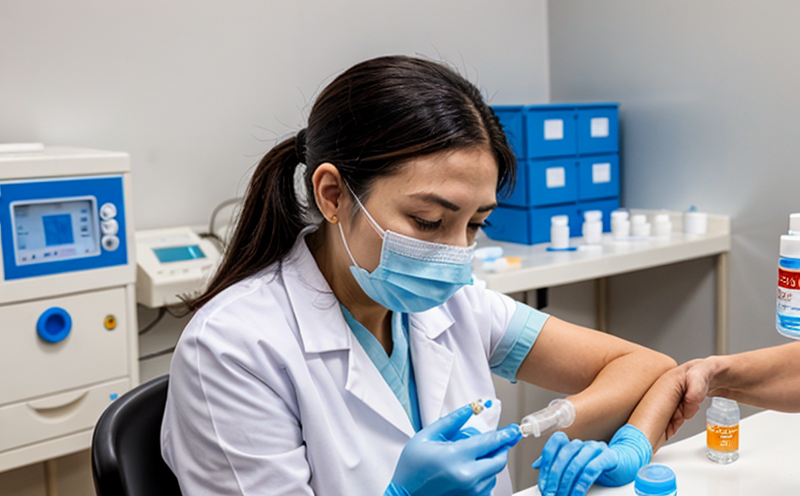JP Identification Testing of Vaccine Antigens
The Japanese Pharmacopoeia (JP) is a widely respected reference document in pharmaceutical science that sets standards for quality, purity, and identity of medicinal products. JP identification testing of vaccine antigens ensures the accurate and consistent identification of key components within vaccines to meet regulatory requirements and ensure product safety and efficacy.
This service involves the rigorous analysis of vaccine antigens using advanced analytical techniques such as High-Performance Liquid Chromatography (HPLC), Capillary Electrophoresis, and Mass Spectrometry. The aim is to identify the exact molecular structure of the antigenic components in vaccines, confirming their identity against established standards.
The process begins with thorough sample preparation, which includes extraction methods tailored to preserve structural integrity during analysis. Once prepared, these samples undergo multiple analytical steps designed to break down complex structures into simpler compounds for easier identification. This is followed by comprehensive data interpretation and comparison with reference materials provided in the Japanese Pharmacopoeia.
JP identification testing of vaccine antigens plays a crucial role in maintaining high standards of quality control within pharmaceutical manufacturing processes. By adhering strictly to these tests, manufacturers can ensure their products meet not only local but also international regulatory demands set forth by organizations like WHO and FDA.
In summary, this service provides peace of mind for stakeholders involved at every stage of vaccine development and production, from initial research through final product release. It helps maintain consistency across batches while ensuring compliance with stringent quality assurance protocols outlined in the Japanese Pharmacopoeia.
Why It Matters
The importance of accurate identification cannot be overstated when dealing with biologics such as vaccines. Even minor discrepancies can lead to significant issues ranging from ineffective immunization coverage to potential health hazards for recipients. Ensuring precise identification through rigorous testing not only upholds public trust but also contributes significantly towards safeguarding global health.
- Guarantees adherence to strict regulatory frameworks
- Promotes consistency in batch production
- Enhances overall product reliability and safety
- Supports continuous improvement efforts within R&D departments
These benefits underscore the critical nature of reliable identification methods, making them indispensable tools for any organization committed to excellence in biopharmaceutical manufacturing.
Environmental and Sustainability Contributions
While JP Identification Testing itself does not directly contribute to environmental sustainability, it supports broader initiatives aimed at reducing waste and improving resource efficiency throughout the pharmaceutical supply chain. By ensuring accurate identification early in the process, unnecessary rework or discarding of materials can be minimized, leading to more efficient use of resources.
Additionally, this service helps reduce the risk of product recalls due to incorrect formulations or impurities, which could otherwise result in further environmental impacts during disposal. Through meticulous quality assurance practices like those offered here, companies contribute positively towards sustainable business operations and responsible stewardship of natural resources.
Use Cases and Application Examples
This service finds application primarily within pharmaceutical manufacturing facilities where high levels of precision are required for identifying individual components within vaccines. Some specific scenarios include:
- Initial development phases to validate new formulations
- Batch release testing before market distribution
- Quality audits conducted internally or by regulatory bodies
- Investigations into adverse events reported post-market launch
By leveraging this expertise, clients can build robust quality assurance programs tailored specifically to their needs, thereby enhancing both operational efficiency and public confidence in the safety and effectiveness of their products.





